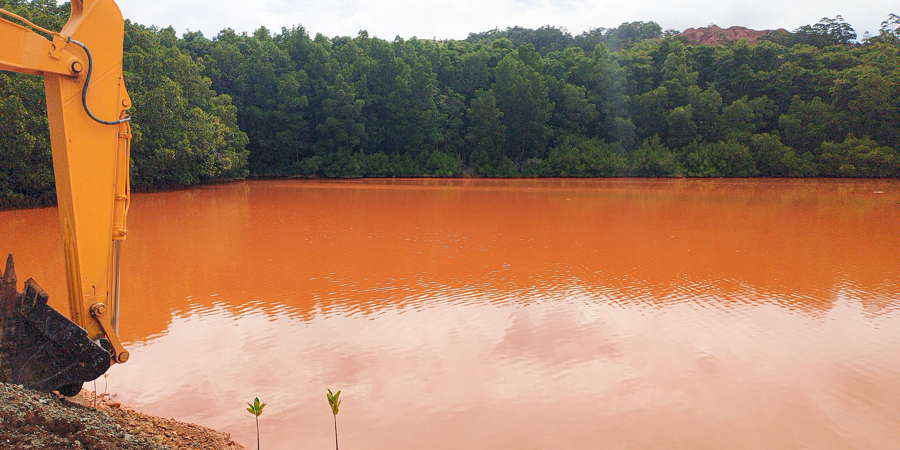In a forgotten stretch of the world where forest once breath and rivers once sang, a group of women stands tall, though their feet are weary and their throats dry.
They are like shepherds on a sun-scorched hill, pleading with the heavens for mercy, as the earth that once nurtured them crumbles beneath the weight of bulldozers and greed.
The search for food has become tough. The soil is thin and dry, the rivers murky. Once abundant gardens have withered under the strain of industrial invasion as mining scars the hills, logging strips the trees bare, and the land cries in silence.
But the women do not. They raised their voices, hoarse though they may be, into the growing void.
They fight not for themselves, but for the laughter of their children and the unborn hopes of their grandchildren. These women, guardians of their homes and protectors of ancestral land, are waging a battle many have already declared lost.
This is the story of four of them—four warriors standing against a tide.
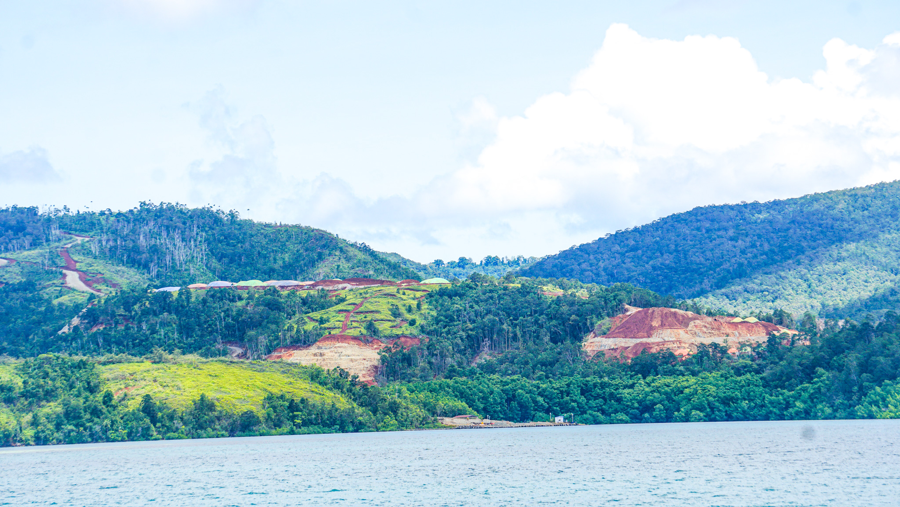
Sophia Te’u: The Seed Keeper
Growing up with her parents at Lelegia and Fanavi in Isabel Province, Sophia remembers when her grandmother taught her how to tend to yams, cassava, kumara and taro, how to speak to the soil.
Today, she walks the same garden paths, but the earth feels alien. “I planted,” she says, “but my gardens produce less harvest. Our nearby stream is sick and the trees are crying as logging and mining invades the once peaceful and greenish forest.”
Sophie as most of her villagers known has become the voice of her village, attending every meeting with officials, armed only with truth and grief. “They told me I didn’t understand development,” she says. “But I know destruction when I see it.”
Sophia Te’u is a women leader of Fanavi village.
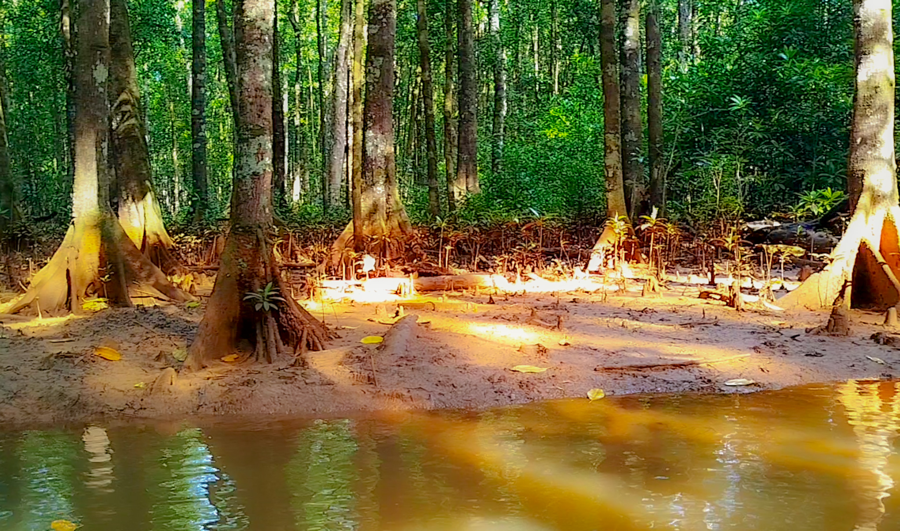
Emma Anihi: The Water Watcher
Elizabeth’s days once began at the river. It was where she bathed her children, filled her pots, sang her morning songs.
Now, the water runs thick with sediment and smell of fuel can be heavy on the river. Fish have fled and at the river mouth, one of her village’s staple protein foods – a mud-shell locally known as Najagu is getting scares.
“My village is sand witched between two logging operations and now prospecting for nickel is underway.
“Our lives and so as our children’s future is overshadowed by these operations,” she said.
With her fellow women, Anihi staged a protest, with handmade signs “stop logging, our water our life” pinned to sticks at a nearby road hoping the loggers will see and actioned their plea. This was in 2023, and nothing has changed.
Emma Anihi is a women leader of Koisisi village.
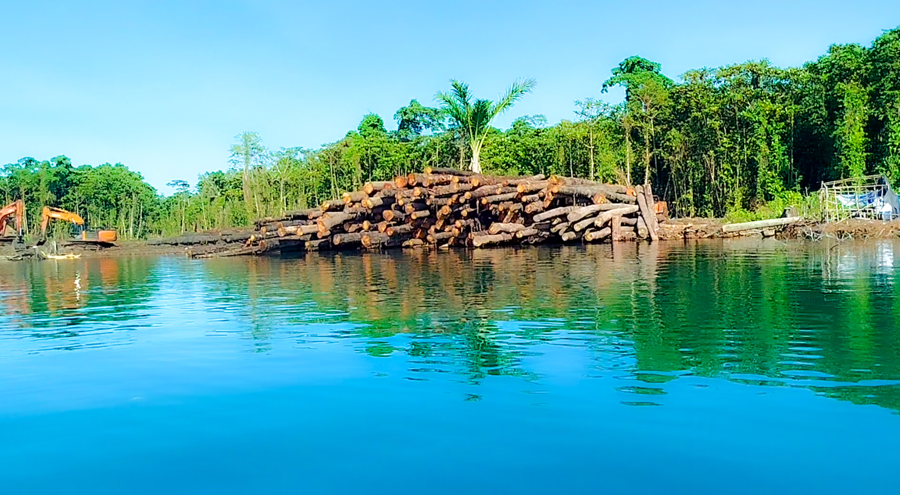
Muriel Ofovaka: The Forest Mother
On the island of San Jorge, Muriel Ofovaka, known as the Forest Mother is raising awareness in an effort to stop a proposed mining operation at the island.
Her realization of such a devastating development came in 2009 till 2019 when logging operations run rampage on the tiny island.
For Murial, the forest was more than a source of food, it was sacred. She knew each tree by name some of which are traditional herbs.
But now, entire groves vanish overnight. Logging trucks rumble past her village, indifferent to the tears they leave behind.
“They cut our spirits down,” Muriel whispers. “The forest raised us, clothed us, fed us and healed us. What will raise our children now?”
Muriel joined a coalition of women who tried to convince chiefs and landowners to stop logging and now proposed mining.
Muriel Ofovaka is a respected women leader of Talise Village – one of the communities that inhabited San Jorge Island.
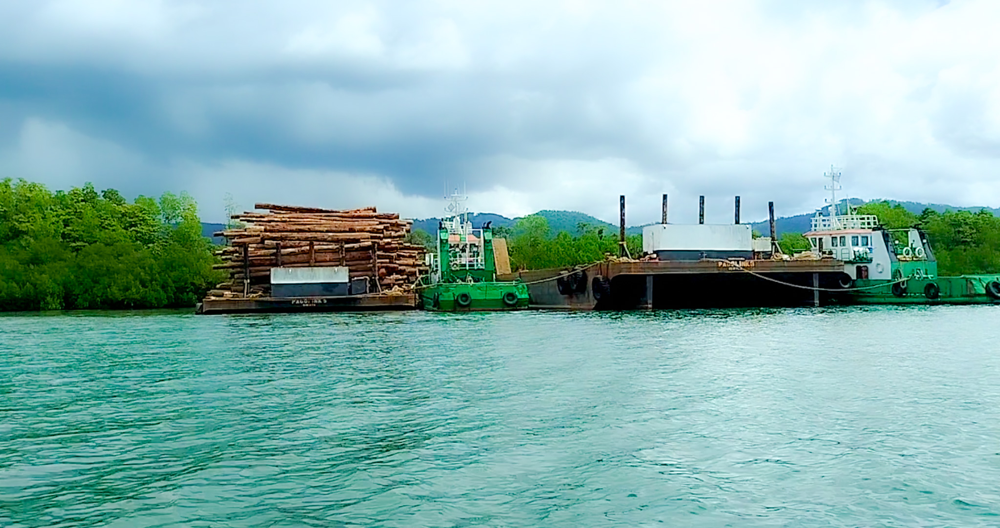
Jessie Francis: The Sea Watcher
Jessie is the loud one, the fierce one. “They tell us we’re being emotional,” she says, laughing bitterly. “Of course we are. We’re watching our environment being damaged.” We talked to government officials but nothing has changed”.
According to Jessie, the mangroves where women used to get foods have been polluted so as the reefs and she blame the mining and logging operating close to her village.
“We are the last voice this land has,” she says. “If we stop screaming, who will hear it die?”
Jessie Francis is a women leader of Lelegia village.
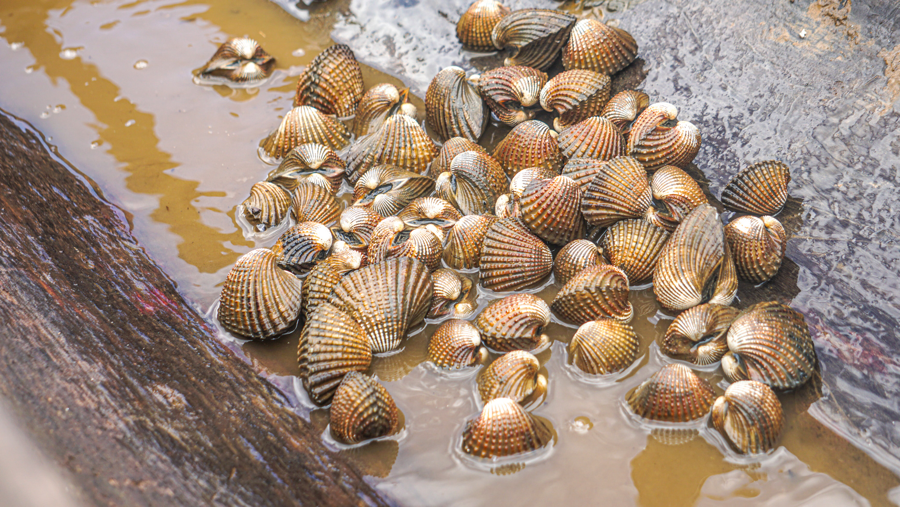
Behind the scene battle
Far from the corridors of power and policy, a quiet revolution has been taking shape. It is a story of resilience, community, and a fight to protect ancestral lands — not for profit, but for survival.
In 2023, I had the privilege of conducting a workshop for local chiefs in Koisisi village, focusing on Biocultural Systems, Traditional Protocols, Food Security, and Gender Roles.
What I didn’t anticipate was that I would leave not just as a facilitator, but as a witness to the fierce courage of women who are on the frontlines of defending their communities.
It was during that visit those women of Koisisi stepped forward with their stories — testimonies of hardship, of loss, and of unwavering determination. These were not mere anecdotes; they were powerful accounts of lived experiences.
Inspired by their bravery, I stood beside them in a peaceful protest against a logging operation threatening their sole water source. The women marched not with banners, but with purpose — a call for justice, for life, for water.
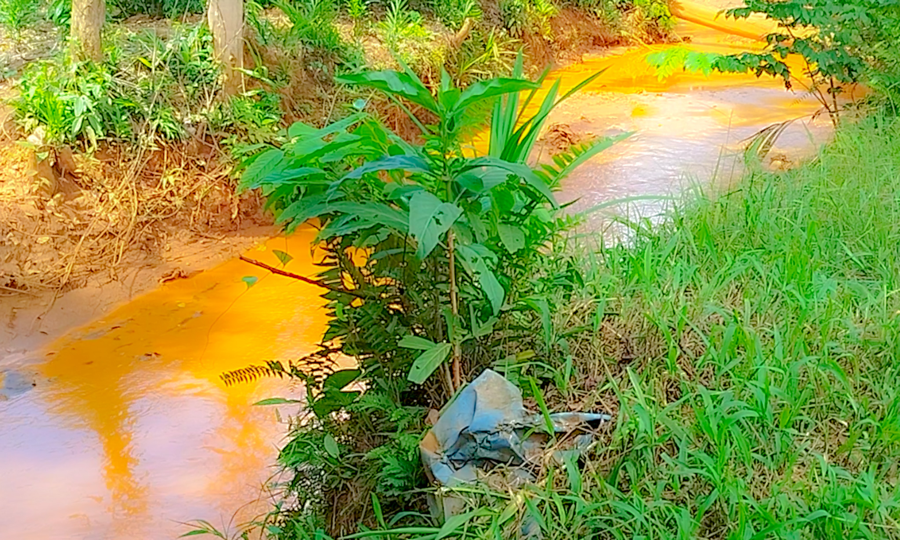
Their fight, however, is far from over.
Koisisi now faces a new and even more complex threat: prospecting for nickel. The promise of economic development hangs in the air, but so too does the fear of irreversible environmental damage. The wounds left by logging have not yet healed, and already, another battle looms.
During my Christmas visit in 2024, I travelled to the communities of Lelegia, Fanavi, and Talise. There, too, women sought me out — not with demands, but with a simple, heartfelt plea: “Tell our stories.”
These women do not ask for luxury. They ask for clean water, for healthy forests, for safe homes for their children.
They speak of the daily burden rural women carry, a burden made heavier by unchecked development and the silence of those in power.
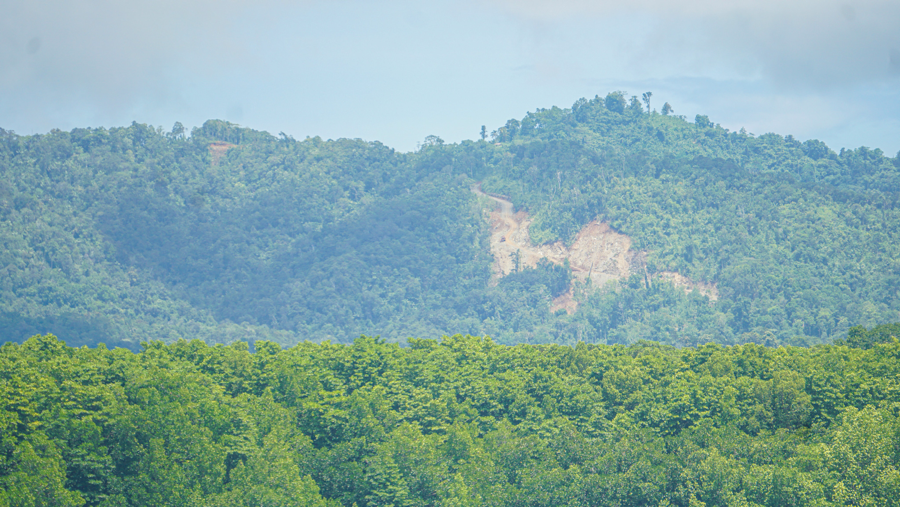
Now, in 2025, that silence is being challenged.
Over the Easter weekend, I returned to Lelegia for a workshop on Reviving Traditional Conflict Resolution Mechanisms, made possible by the Network for Indigenous People Solomon (NIPS). The chiefs who attended came not just as leaders, but as voices for their people — and they are no longer willing to stay quiet.
Chiefs from Talise, Lelegia, and Koisisi expressed growing frustration over the government’s inaction. Allegations of water contamination, mangrove destruction, and damage to rivers and streams are no longer whispers — they are being spoken aloud, and with urgency.
Chief Joses Vahi of Lelegia shared that his people can no longer trust their own drinking water. “There is a foul smell when we drink from our taps,” he said, adding that prospecting activities are underway dangerously close to their water source. The implications are more than environmental — they are existential.
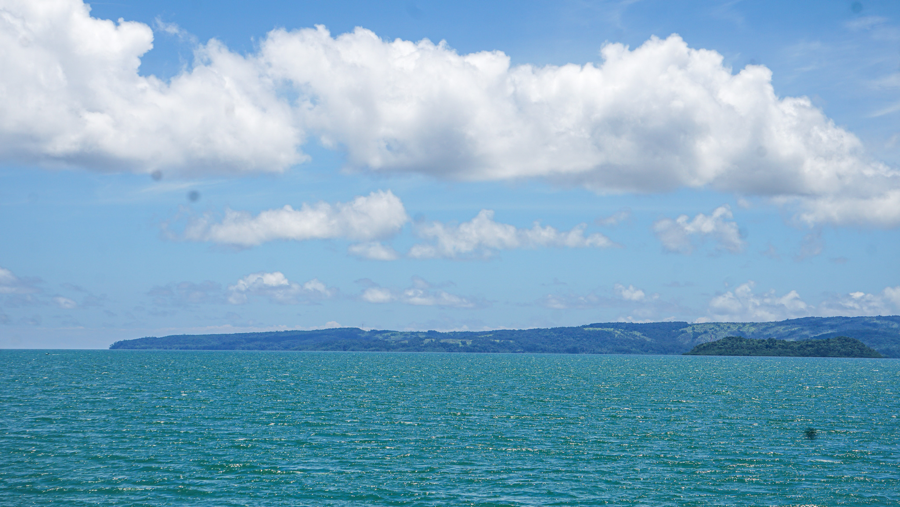
In Koisisi, Chief Bolen Rogenoda echoed the same concerns.
“You witnessed the damage done by logging when you visited our community in 2023. Nothing has changed. Logging continues. Now there is mining. We accept that development is important, but the government must step up and protect our environment,” he said.
Chief Rogenoda’s words ring with both urgency and clarity: these communities are not anti-development.
They are not against progress. But they demand — and deserve — responsible governance, where sustainability and Indigenous rights are not afterthoughts, but priorities.
What is unfolding in these communities is more than a local issue. It is a reflection of the broader struggle many Indigenous and rural peoples face across the Pacific and beyond — a fight for the right to exist on their land without the threat of displacement, pollution, or exploitation.
The women and chiefs of Koisisi, Lelegia, Fanavi, and Talise are not asking for the impossible. They are asking to be heard. To be respected. To be part of the decisions that affect their future.
And their message is clear: “If we lose our water, we lose our lives”.
Their fight is not just theirs alone anymore. It is all of ours. The women’s battle continues—not with weapons, but with stories, traditions, and an unbreakable bond with the land. They are not victims. They are witnesses. They are warriors. And though the world may not yet listen, their voices refuse to fall silent.
I grew from the roots of these lands, where the sea fed our mornings, and the bush whispered secrets to the wind. Gardens bore more than food—They bore life, stories, a lineage of survival.
My mothers and fathers, Aunties and uncles, their hands shaped by earth and tide, live not beside nature, but within it.
To wound the land is to wound them. To poison the sea is to silence their song. To take from the forest without care. Is to cut the cord that ties us to who we are.
I once held a pen, like a blade of justice, carving space for silenced voices— Telling truths that echoed. From village huts to city walls. But now, I pause. I wonder. Does my voice still carry? Does it still matter? When the land grew dry and the trees fall faster— Can stories alone hold the flood back?
Still, the child in me remembers—The taste of salt on sunlit skin, The feel of soil between eager fingers. And I know, so long as breath stirs in my chest, my fight—our fight— still matters.
BY BEN BILUA
Freelance Journalist.

